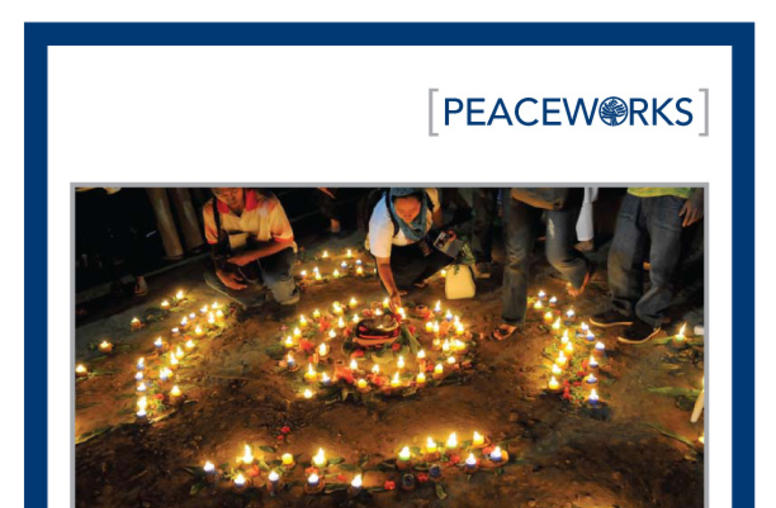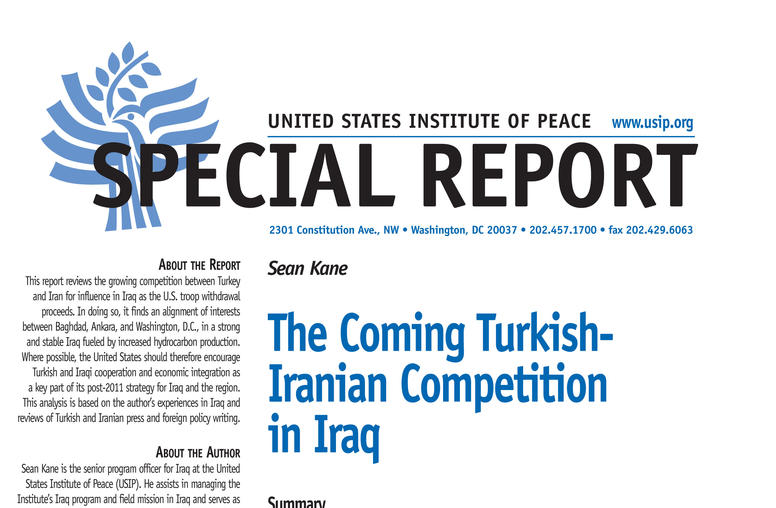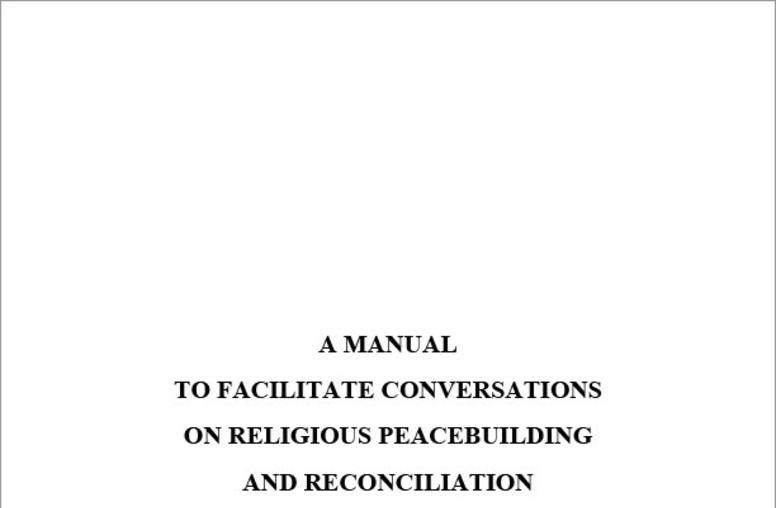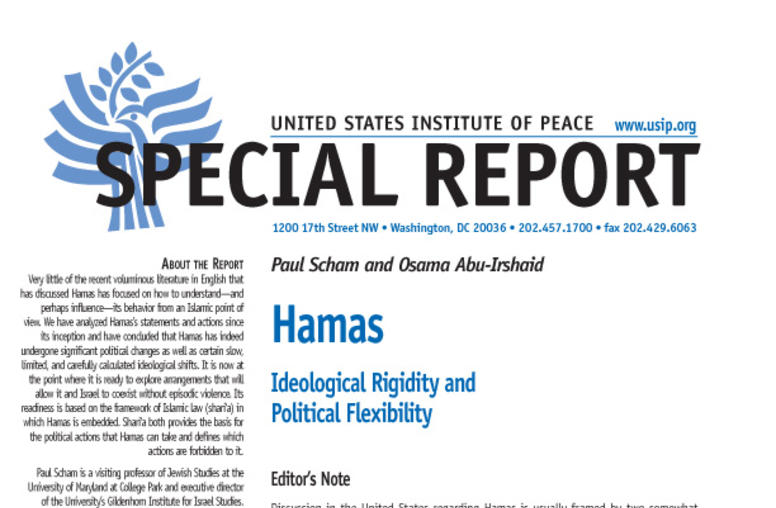Publications
Articles, publications, books, tools and multimedia features from the U.S. Institute of Peace provide the latest news, analysis, research findings, practitioner guides and reports, all related to the conflict zones and issues that are at the center of the Institute’s work to prevent and reduce violent conflict.

Women in Religious Peacebuilding
To recognize and understand better the role of women in religious peacebuilding, the United States Institute of Peace, the World Faiths Development Dialogue (WFDD), and Georgetown University’s Berkley Center for Religion, Peace, and World Affairs launched an initiative with a symposium on July 7 and 8, 2010, at Georgetown University. This report highlights the initiative’s main findings to date.

The Coming Turkish-Iranian Competition In Iraq
This report reviews the growing competition between Turkey and Iran for influence in Iraq as the U.S. troop withdrawal proceeds. In doing so, it finds an alignment of interests between Baghdad, Ankara, and Washington, D.C., in a strong and stable Iraq fueled by increased hydrocarbon production. Where possible, the United States should therefore encourage Turkish and Iraqi cooperation and economic integration as a key part of its post-2011 strategy for Iraq and the region. This analysis is bas...

A Manual to Facilitate Conversations on Religious Peacebuilding and Reconciliation
USIP has found the documentary film "The Imam and the Pastor" useful as a resource for workshops and training programs exploring themes of religious peacebuilding and inter-group reconciliation. As such, we commissioned religion and peacebuilding specialist David Steele to produce a facilitator’s manual so that others might use this documentary, and the follow-up documentary "An African Answer," in their own training and workshops.
Religion, Conflict, and Education
USIP's Current Projects on Religion, Conflict, and Education Curricular Material for Madrassas In Indonesia, USIP is working with local Islamic scholars and clergy to develop curricular materials that provide contemporary interpretations of Islamic texts on peace, violence, interfaith relations, human rights, the status of women, and the environment. Materials developed in Aceh have been piloted and embraced by local ulama. The materials are currently being translated into English and...
American Foreign Policy and Islamic Renewal (Arabic Edition)
Summary The United States still lacks an integrated and sustainable strategy to confront religious extremism in the Muslim world. Policymakers have failed to recognize that the challenge is not only a conflict with the West but also involves ideological shifts within the Muslim world. These shifts have precipitated a major battle for the future of Islam as a faith and a civilization.
Who Are the Insurgents? Sunni Arab Rebels in Iraq (Arabic Edition)
Summary Building a profile of a typical anti-coalition Sunni Arab insurgent in Iraq is a daunting task. Demographic information about the insurgents is fragmented, and the rebels themselves are marked more by their heterogeneity than by their homogeneity. Drawing from a wide array of sources, however, we can try to piece together a view of their primary motivations for taking up arms against the U.S.-led occupation.
Ijtihad: Reinterpreting Islamic Principles for the Twenty-first Century (Arabic Edition)
Summary Many Muslims believe that they must choose between Islam and modernity or between Islam and democracy, but these are false choices. To reinterpret Islam for the twenty-first century, the practice of ijtihad (interpretation and reasoning based on the sacred texts) must be revived. Religious scholars effectively terminated the practice of ijtihad five hundred years ago. But the principles of interpretation are well established and the need for contemporary interpretation is co...
Islamist Politics in Iraq after Saddam Hussein (Arabic Edition)
Summary Islamism, as a basic feature of Muslim and especially Arab politics, is destined to play a major role in the future of Iraqi politics. A huge moral and ideological vacuum has now emerged in Iraq, and Islam is tailor-made to provide a new moral compass to the people.

Hamas: Ideological Rigidity and Political Flexibility
Hamas's landslide victory in the Palestinian parliamentary elections of January 2006 came as an unwelcome and unexpected shock to both Middle Eastern and international regimes, with the organization winning nearly 58 percent of the Palestinian Legislative Council seats. The United States, a number of European nations, and Israel had all issued clear warnings before the elections that they would not deal with a Palestinian Authority led by Hamas.